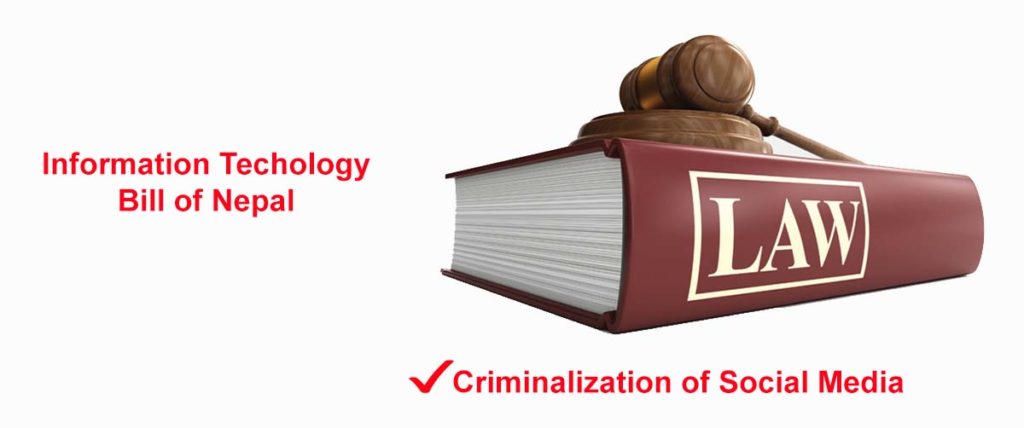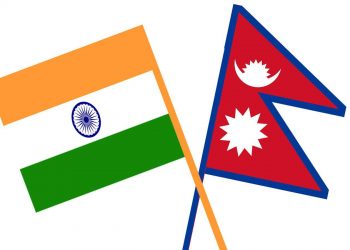KATHMANDU: New proposed laws relating to social media use in Nepal are intended to stifle dissent and silence critical voices, say global and regional human rights groups.
Global civil society alliance, CIVICUS and the Asian Human Rights Commission (AHRC) say they are seriously concerned that new legislation, which has been tabled in parliament by the Nepalese government, are meant to create a chilling effect on freedom of expression in the country.
A new law being introduced by the government gives the authorities sweeping powers to block social media platforms and remove or criminalize defamatory posts, states a press release issued by CIVICUS and AHRC today.
The government has also tabled legislation that restricts civil servants from sharing their views in the media including via social media sites.
On February 20, 2019, Nepal’s government tabled the Information Technology bill in parliament, which would impose harsh sanctions for “improper” social media posts. Under the proposed law, the government would have the power to block social media sites like Facebook, Twitter and YouTube, unless the owners registered their platforms in Nepal.
The government can also instruct social network site operators to remove posts. Failure to do so could lead to a three-year jail term and a fine of 30,000 Nepalese rupees. Those responsible for social media posts deemed defamatory or against national sovereignty could be punished with up to five years behind bars and a fine of 1.5 million Nepalese rupees.
“We are extremely concerned that this bill is overly broad and restrictive and, if passed, could be used to block or criminalise reporting on government misconduct and the expression of critical opinions by civil society and citizens,” said Josef Benedict, CIVICUS Civic Space Researcher.
“Any efforts to genuinely regulate online content must be approached in a transparent and consultative manner, and avoid criminal restrictions on free speech,” said Benedict. “We call on the Nepalese government to ensure that the legislation is in line with international law and standards in particular the International Covenant on Civil and Political Rights which it has ratified and that vague provisions around protecting national sovereignty should be removed” .
CIVICUS and AHRC are also concerned about a new bill, tabled on February 13 2019, that prohibits civil servants from sharing their views through media including their micro-blogging sites, even after their retirement from government service.
The law also prohibits speeches and writing that are considered “contrary to the policies of the Government of Nepal or to undermine mutual relationship between the Government of Nepal and the people or the relationship with any foreign country”.
“It is extremely worrying to see such laws being introduced by the authorities that will further shrink civic space in Nepal,” said Basil Fernando, Director of AHRC. “Criticism and dissent are essential attributes for an open and democratic society. We urge the authorities to pull the plug on such regressive legislation and instead take steps to create an enabling environment for freedom of expression to flourish,” said Fernando.
Freedom of expression in Nepal continues to face serious threats. Journalists have been arrested and charged under the Electronic Transaction Act 2008 for their reports and dozens have been attacked or threatened. Police have also used excessive and lethal force at demonstrations, with impunity and laws have been proposed to curtail the work of NGOs.
The CIVICUS Monitor, an online platform that tracks threats to civil society in countries across the globe, rates civic space – the space for civil society – in Nepal as obstructed.









Comment